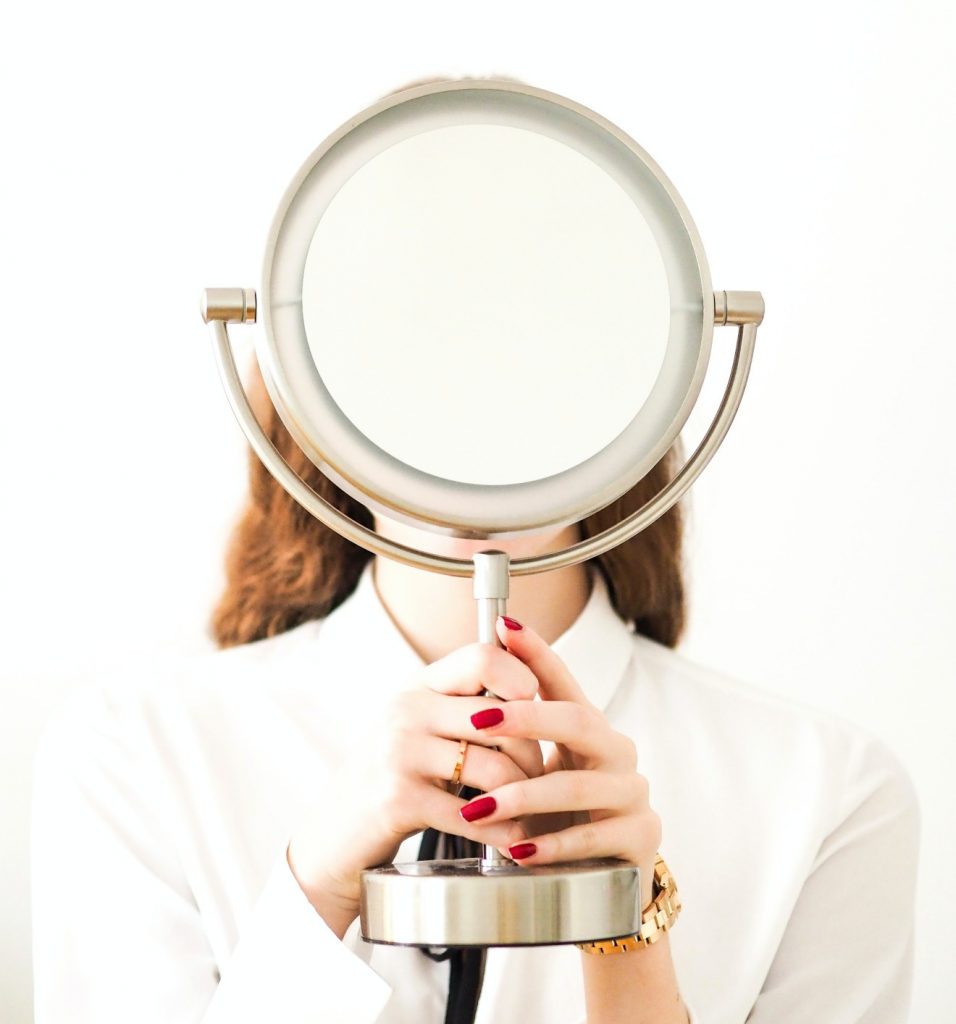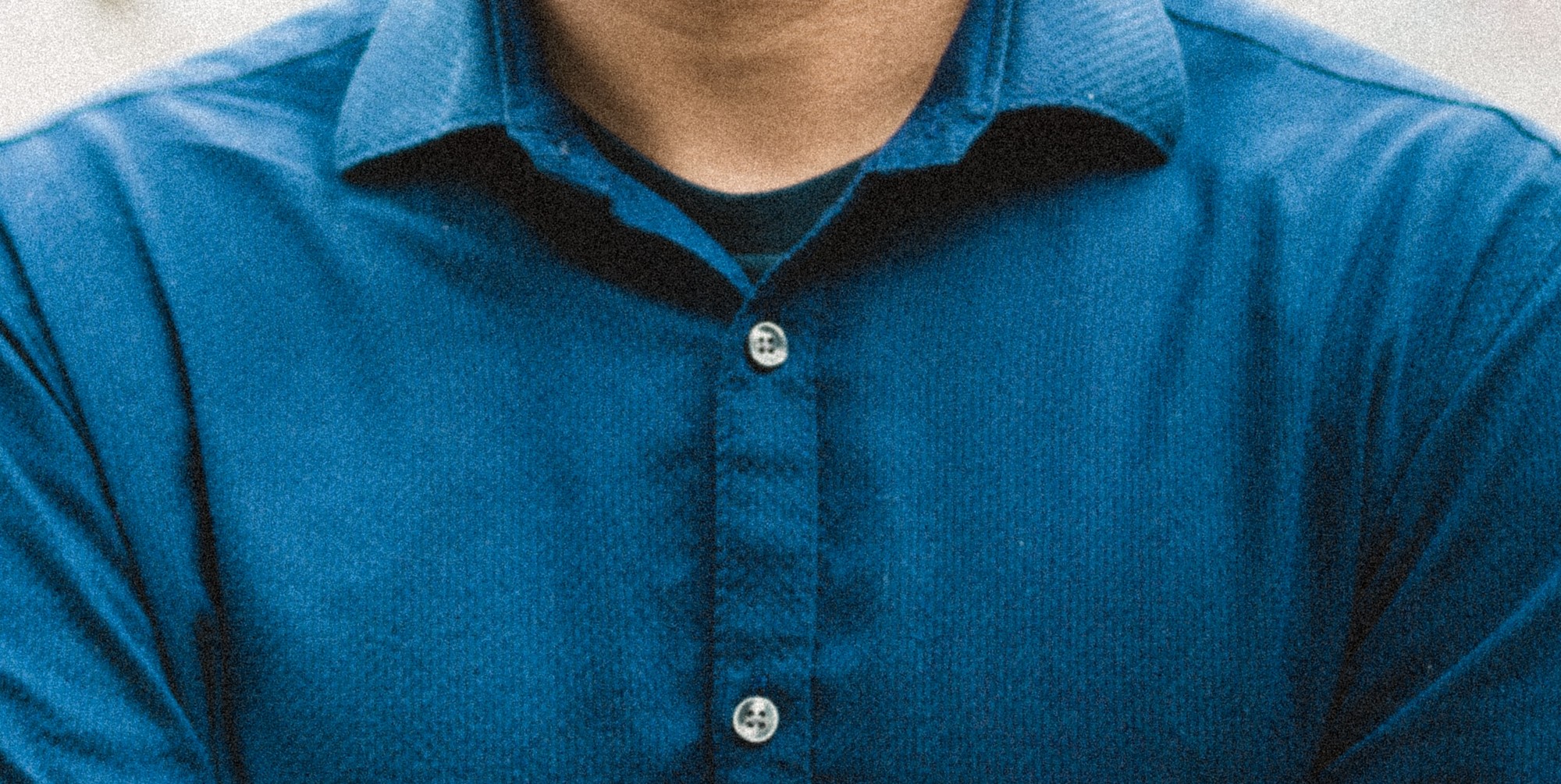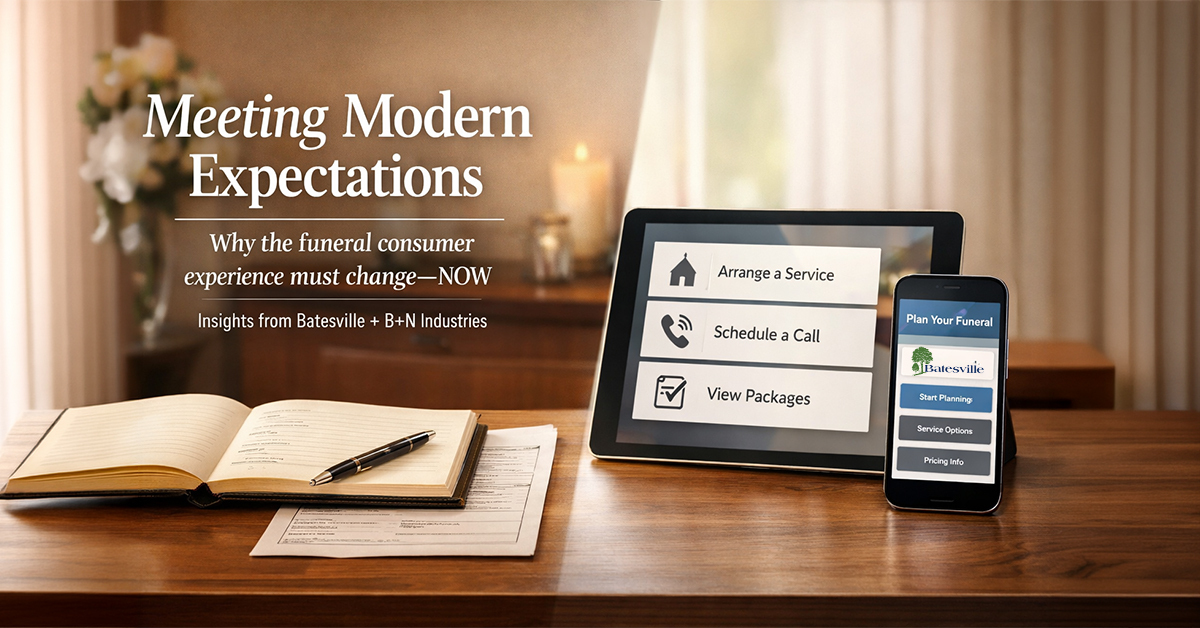Shifting Generational Values Could Mean the Death of the Suit in Deathcare
A recent survey for funeral professionals put out by Connecting Directors showed that 33.8% of deathcare professionals identified recruiting and retaining quality employees as their biggest professional challenge, ranking it the highest on the survey’s list. As younger demographics with shifting values exit mortuary schools and flood the job market, a useful place to look at improving employee retention is examining what different generations of employees are looking for in the workforce.
Much research shows that the millennial and gen z generations look for different qualities when making purchases and when finding a job and that these sweeping cultural shifts could herald the death of the suit in the workplace. Younger generations prefer a more relaxed work dress code, which could mean a rising preference for dressing down in deathcare. Luckily, changes in generational values don’t have to be a strain on your business. You can keep up with consumer values, and shift your company’s culture to attract top-quality employees, and cultivate a forward-thinking business that thrives in today’s market.
Dressing Down in Deathcare
When it comes to hiring the next generation of deathcare professionals, a recent article on Connecting Directors pointed out that fresh mortuary school grads from the millennial generation might lean toward dressing down in deathcare workplaces. According to one 2018 survey of 2000 adults, “61% of workers across ages and professions did not see an upside to strict work dress codes. Furthermore, that survey revealed that “the unhappiness with dress codes was strongest with millennials, the demographic group most likely to consider leaving a job over an office dress code. Around 18% of people ages 18 to 24 said that a strict dress code would make them consider quitting their jobs.”
Within the shifting values of the growing millennial and gen-z workforce, creativity and positive company culture that supports mental health is an important aspect of job satisfaction. One article on evolving dress code preferences points out that “a less strict dress code allows people to express themselves, which can help elevate creative thinking. When people are more creative and comfortable, they’re happier, and their work is going to be of higher quality. Office dynamics are also better between happy people (obviously), which will lead to an increase in workplace collaboration and volume of work being completed.” This means that specifically for professionals working in the death care space, relaxing the dress code could help avoid emotional stressors and burnout that have traditionally been considered inherent to the job.

There is also an abundance of evidence to support the claim that a non-formal dress code increases productivity. Psychologist and Occupational health expert Sir Cary Cooper explains, “Strict policies have only persisted so far due to the attitudes of senior leadership, who grew up with the idea that wearing a suit and tie to work was the only way[…] There’s scant evidence that dress codes have a positive impact on well-being, productivity or perceptions of an organization […] Of those surveyed, 61% said the dress code had no positive impact on their productivity, while 45% said they’d be more productive wearing what they felt most comfortable in.”
Dressing down in deathcare workspaces and relaxing attire policies could mean increased office productivity and more emotional bandwidth to focus on serving families.
What effect does the attire of salespeople have on the consumer?
Traditionally, it’s been assumed that a formal dress code communicates authority, power, and professionalism in business situations. With recent shifts in employee satisfaction, and productivity statistics pointing towards a preference for dressing down in deathcare workplaces, it’s fair to wonder what a relaxed dress code communicates to consumers. It turns out, the answer is very dependant on the profession. While older generations still prefer their doctors and lawyers to wear formal suits to show competence in those specialized fields, in professions that are more personal and intimate, consumers are beginning to prefer a more relatable appearance. One article on Inc.com states that “More and more the appearance of suits (even in client-facing roles) strikes people with the fear of an audit more than it does with the impression of professionalism. The consumer impressions of what a professional person looks like are also loosening. People are more open to tattoos, beards, piercings, etc. which is why Starbucks, PetSmart, and other retailers and employers have relaxed their dress code in each of these categories.”
In a recent interview with the Deathcare Decoded podcast, Ryan Thogmartin, CEO and Founder of Disrupt Media and Connecting Directors, addresses the role of suits in business fields as setting up power dynamics, and questions why a funeral director would need that sort of power over the families being served:
“The suit and tie in a business meeting is a position of power, meaning that if someone is coming to you, mister banker, to have a meeting and they are in levis and a t-shirt and you’re in a 500 dollar Armani suit you’re in a power position. You have that power from a dress perspective. Why does a funeral director need to have that kind of power over the family? Wouldn’t it be far more comfortable if that family came in in levis and a t-shirt and the funeral director was in khakis and a golf shirt to where it’s a level playing field, the engagement is much more authentic[…]? That’s kind of how I look at it. I think that funeral homes can get away with not wearing a suit and tie… sure for the funeral, yes suit and tie, but when you are engaging with a family and doing the things where they just need you to be human, what you have on really isn’t going to matter to the consumer all that much.”
Younger demographics of consumers want a more approachable business experience that reflects their values of solid investments, minimalism, and eco-consciousness, not authoritative or rigid formality. Furthermore, no funeral director wants to come across as a pushy salesman when client families are in a state of grief, so the answer seems clear… If you don’t want to seem like a stuffy salesperson, stop dressing like one.
Policy Change Considerations
If you’re considering making changes to your company’s dress code policy in favor of a more relaxed and personable appearance, there are a few helpful things to keep in mind. First, it’s best to set clear parameters about new dress code guidelines. Policy complexity and ambiguity breed confusion, so make sure your expectations and attire boundaries are clear. You can allow dressing down in deathcare, but still provide parameters about who your company is, what your values are, and how the appearance of employees should address and reflect those values. In his discussion with the Deathcare Decoded podcast, Ryan Thogmartin, outlined why he thinks authenticity and personal style are vital for creating company branding in deathcare, and how creating guidelines for your employees to follow can help everyone in your business achieve the right company culture as a team:
“[Growing up] I was always under the impression that less structure meant more creativity and more creativity meant more freedom, and freedom is what I love. So [I value] letting people be who they are. I didn’t like it when someone tried to put me in a box and tell me I had to wear a suit because that wasn’t me. So I always had this sense of letting people make their own decisions. But at the end of the day when you don’t have guidelines and you don’t have boundaries, and it’s a lot harder for people to play within the rules because you don’t know what the rules are, and so people actually have less freedom. I think having the opportunity for your staff to have their own identity is huge. There have to be core values of the business and [the people on your team] have to match those core values, but it’s their responsibility to let their personal brand align with and play within the values of the business. There is freedom there, but there is still a level of respect.”
“Business Casual” is one middle-ground option that is popular amongst client-facing businesses looking to adopt a non-formal dress code. This article which gathers research conducted on the effect of dress code on company culture reveals that “It can be beneficial to promote the personal relationship by coordinating styles with the client’s, based on their degree of formality. Thus, business casual dress is most effective in personal situations as it creates more approachability and relaxation, unlike formal attire which is typically thought of as a more rigid and authoritative style of dress.” For funeral businesses that want to come across as approachable and empathetic, while still projecting competency and respect, business casual is an excellent place to start. However, it’s important to evaluate the views and preferences of your staff and clients before making dress code decisions and to provide clear guidelines for your expectations.
Looking Forward
Dressing down in deathcare to meet the shifting values of deathcare’s next generation of employees can help funeral businesses flourish in an evolving market. There are a few things that you can do now, like honing in on your company’s core values and considering relaxing your company’s dress code, that will go a long way towards attracting and retaining millennial employees as well as making families feel more comfortable.
Understanding the high risk of burnout and the emotional strain in the death care profession, and allowing employees to have more freedom of dress, can help with stress, anxiety, and overall mental health. The research shows that, when employees (especially millennials) are happier at work, they stay at their jobs longer. The simple act of relaxing your formal dress code, and providing clear guidelines for dressing that align with and reflect your company values, will help with your business’s branding and productivity. This shift is a valuable one because productive employees mean a more profitable business. Looking to the future and the next generation of deathcare professionals, it’s clear that if we start building businesses that focus on serving families, not adhering to strict formalities and traditions, everyone wins.
Click below to hear the full episode of Deathcare Decoded with Ryan Thogmartin, “Authenticity Part 1- Branding your Funeral Business.”





